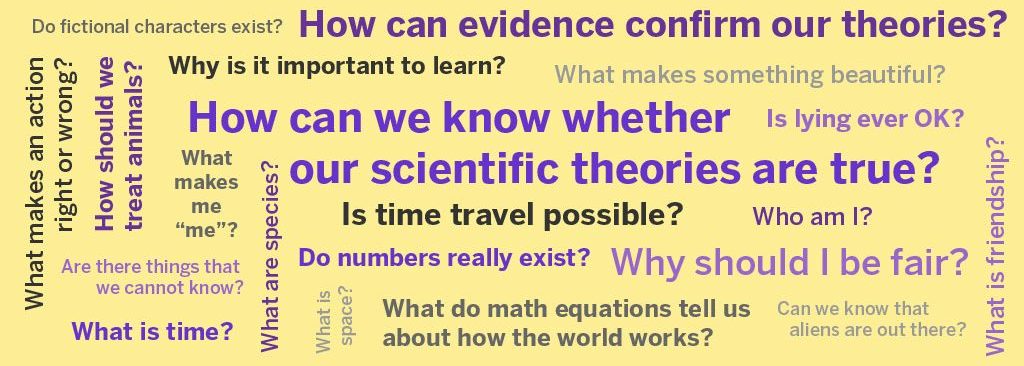K-12 OUTREACH
The Rotman Institute of Philosophy K-12 education program employs a variety of active participation strategies that engage students in the exciting world of philosophy. Our lesson plans are designed to promote cross-curricular and integrated learning. Our K-8 activities act as an introduction to general philosophy, while the activities we complete with high school students explore philosophy in a more in-depth, content specific manner. Details on our K-8 activities are listed below. More information on the philosophy of science lesson plans we conduct with high school students (targeted at biology, chemistry, and physics classes) will be available soon.
To learn more about our program or to schedule a visit to your class, please contact the Rotman K-12 Outreach Coordinator, Yousuf Hasan.
FROM KINDERGARTEN TO GRADE 8
The purpose of our K-8 Philosophy Education program is to introduce students to philosophy as a way to improve their critical thinking abilities and communication skills. Using student-centered strategies — where our focus is on how well students learn — we encourage them to:
- Think critically about what their beliefs are and how they get them
- Find good reasons to support their ideas
- Be able to listen to each other’s ideas
- Share their views and disagree with each other in a friendly and respectful way
- Answer essential questions about how we should behave, what the world is like, what we can know, and how to think properly
Learning Outcomes
By the end of the K-8 sessions, students should be able to:
- Develop their ability to use disciplinary thinking and compare different ways of reasoning
- Give their opinions and defend them by debating in a respectful way
- Analyze and critique example arguments
- Explain and restate another person’s view
- Identify what makes good evidence for a given situation
- Formulate and test hypotheses to solve specific problems
Benefits and Objectives
Students will be able to:
- Improve their critical thinking skills
- Gain confidence in sharing their ideas with their peers
- Build a stronger sense of community by valuing mutual respect and active listening
- Improve their interest in learning by being actively engaged in the discussion
How it Matches the Ontario Curriculum
These activities are designed to promote cross-curricular and integrated learning — portions of the Arts, Language, Mathematics, Science, and Social Science Ontario Curriculum are addressed.
Example Activity: Philosophy of Science Game — An Inquiry Process Activity (Grade 5/6 & 7/8)
Students play a card game to learn how scientific practices work — learning how science is about updating views based on evidence, and how hypothesis testing leads to improved and informed views about the world. Students will first learn how to construct a hypothesis based on observations. They will test their hypotheses by making further observations, and checking whether or not those observations support or negate their view. They will compare their results with their peers, and further improve on their hypotheses, eventually arriving at a correct hypothesis using this trial and error approach.
How does the game work? We designed cards specifically for our own game. The activity begins with the students watching us play. They witness how the game proceeds, but we don’t tell them the rules of play. Based on the observations they record, they formulate hypotheses of how the game works. Next, students get a chance to play the game themselves — testing their hypotheses first-hand and modifying them as needed.

